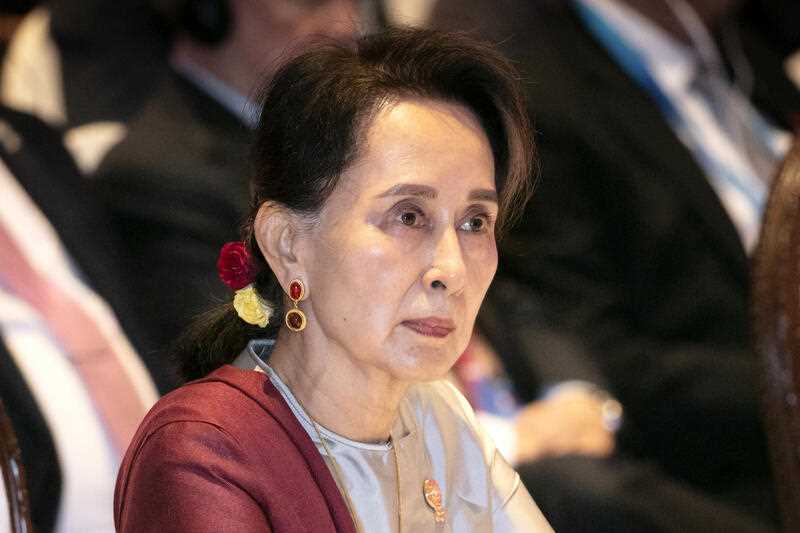Hundreds of people have marched through Myanmar’s streets to urge the release of detained leader Aung San Suu Kyi, who has turned 77.
Images broadcast by Myanmar media, notably The Irrawaddy, and shared on social media by activists showed protests of a few dozen people in cities across the country wishing the Nobel Peace Prize laureate well on Sunday.
Suu Kyi has been incarcerated since the military coup on February 1 last year.
Given the crimes she is accused of, her condition appears unlikely to alter. She was sentenced to 11 years in prison for charges she has rejected.
Several governments around the world have demanded her release.
After assuming power, the military junta began a smear campaign against Suu Kyi, accusing her of several crimes.
On April 27, she was sentenced to five years in prison for accepting bribes worth $US600,000 and 11.4 kg of gold from former Yangon governor Phyo Min Thein, who testified against her in October.
She was sentenced to four years in prison in December, but the sentence was reduced to two years after the military junta granted her a pardon for violating COVID-19 rules and encouraging rebellion against the military.
On January 10, the deposed leader was sentenced to four more years for violating coronavirus prohibitions during her 2020 election campaign and unlawfully importing telecom gear.
Suu Kyi is also accused of abusing her position to illegally purchase land for a foundation she formed in her mother’s memory, as well as allegedly building a house with monies from the organisation.
She is also accused of alleged irregularities in the leasing and purchase of a helicopter by then-Union Minister of Social Welfare Win Myat Aye between 2019 and 2021.
Each of these offences has a maximum sentence of 15 years in jail.
The former State Counsellor is also accused of violating the Official Secrets Act, which has a maximum sentence of 14 years in jail, and of electoral fraud in the November 2020 elections.
Suu Kyi’s lawyers, barred from speaking to the media by the military junta, have maintained that all of the claims against her are false.
With the coup, Myanmar was thrown into a grave political, social, and economic crisis, which has sparked a spiral of bloodshed involving new militia groups, exacerbating decades of guerrilla conflict.
According to the Myanmar non-profit Assistance Association for Political Prisoners, at least 1963 people have died due to security forces’ harsh persecution.



